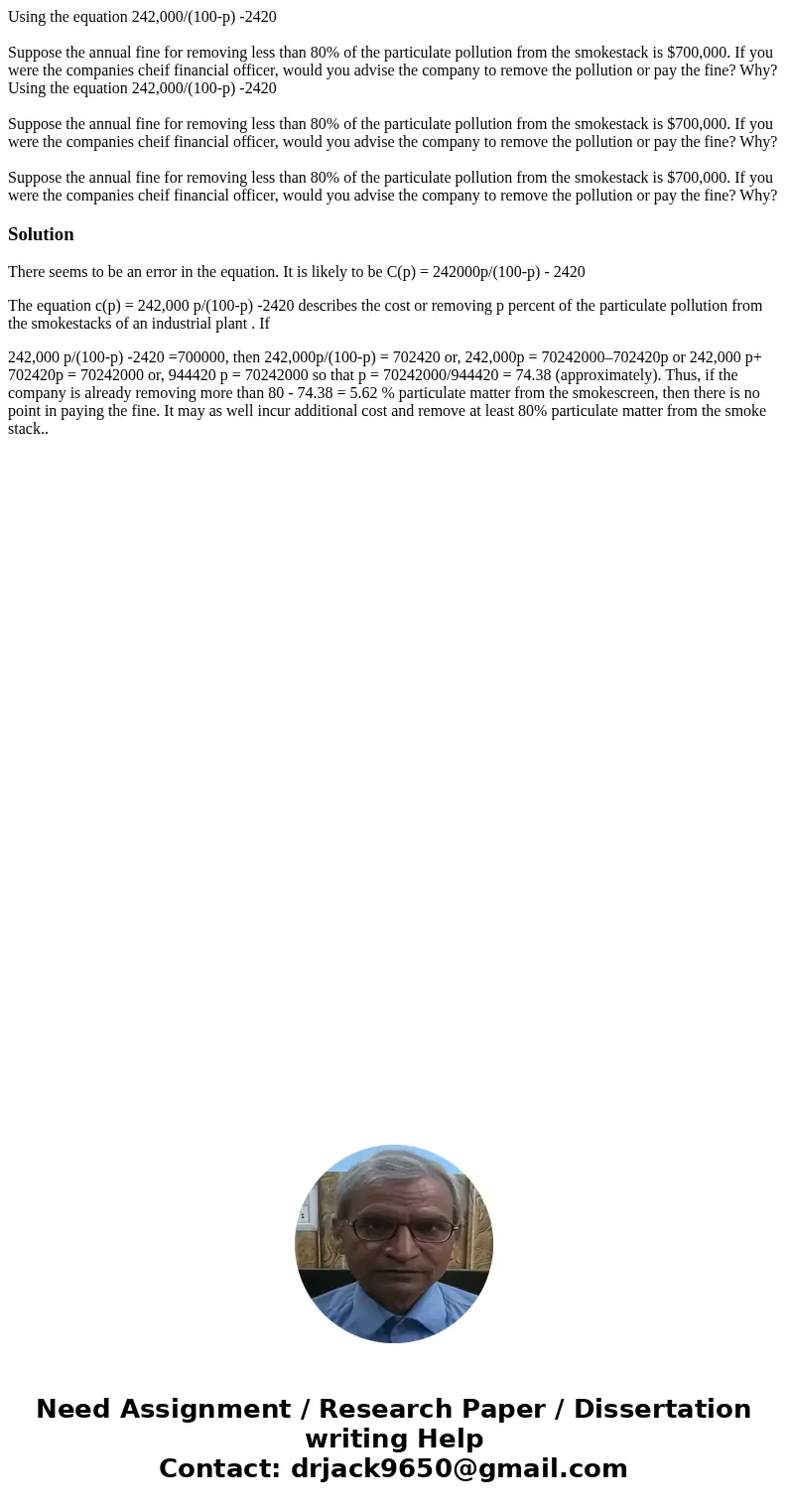Using the equation 242000100p 2420 Suppose the annual fine f
Using the equation 242,000/(100-p) -2420
Suppose the annual fine for removing less than 80% of the particulate pollution from the smokestack is $700,000. If you were the companies cheif financial officer, would you advise the company to remove the pollution or pay the fine? Why?
Using the equation 242,000/(100-p) -2420
Suppose the annual fine for removing less than 80% of the particulate pollution from the smokestack is $700,000. If you were the companies cheif financial officer, would you advise the company to remove the pollution or pay the fine? Why?
Suppose the annual fine for removing less than 80% of the particulate pollution from the smokestack is $700,000. If you were the companies cheif financial officer, would you advise the company to remove the pollution or pay the fine? Why?
Solution
There seems to be an error in the equation. It is likely to be C(p) = 242000p/(100-p) - 2420
The equation c(p) = 242,000 p/(100-p) -2420 describes the cost or removing p percent of the particulate pollution from the smokestacks of an industrial plant . If
242,000 p/(100-p) -2420 =700000, then 242,000p/(100-p) = 702420 or, 242,000p = 70242000–702420p or 242,000 p+ 702420p = 70242000 or, 944420 p = 70242000 so that p = 70242000/944420 = 74.38 (approximately). Thus, if the company is already removing more than 80 - 74.38 = 5.62 % particulate matter from the smokescreen, then there is no point in paying the fine. It may as well incur additional cost and remove at least 80% particulate matter from the smoke stack..

 Homework Sourse
Homework Sourse